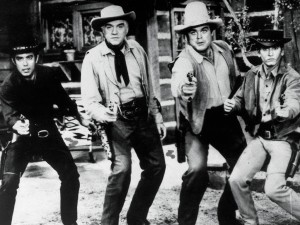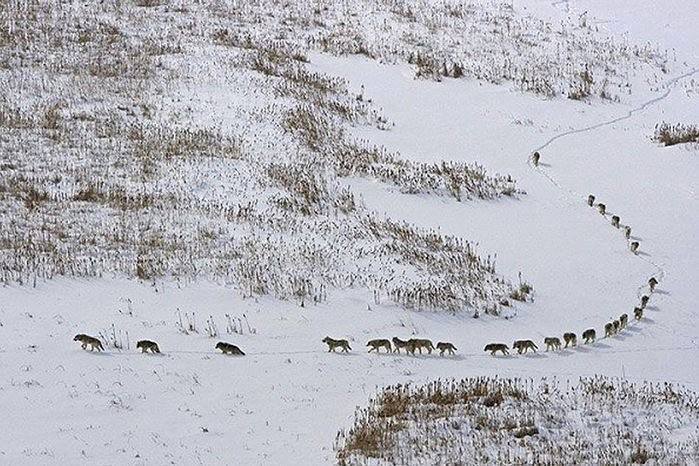Remember Bonanza? Family matters!
 All baby boomers and their parents remember the TV series Bonanza. When I was a kid, the theme song had everyone rushing into the living room as my dad was a great fan of the show himself. No one at the time ever commented on the Cartwright kids still living with their father. Quite the opposite, it was the normal way of life in most ranches and farms. Often there were three generations living together on the same property and sometimes up to five generations. In those days, we used to take care of our own. I clearly remember my father asking us if he could count on us when he became too old to stand his ground, dreaming that, like the Cartwrights, the Estebes would stand together, come hell or high water.
All baby boomers and their parents remember the TV series Bonanza. When I was a kid, the theme song had everyone rushing into the living room as my dad was a great fan of the show himself. No one at the time ever commented on the Cartwright kids still living with their father. Quite the opposite, it was the normal way of life in most ranches and farms. Often there were three generations living together on the same property and sometimes up to five generations. In those days, we used to take care of our own. I clearly remember my father asking us if he could count on us when he became too old to stand his ground, dreaming that, like the Cartwrights, the Estebes would stand together, come hell or high water.
Now, decades of social engineering have wreaked havoc on the fundamental concept of family. This nonsense has the millennials shamed into “having to” go on their own, publicly mocked by political candidates as cave dwellers. What can be more stupid and wrong than breaking the family bonds? I for one do not mind if any or all of my kids are “within the perimeter”. In fact, I certainly prefer it that way, cool to know that, if trouble knocks at the door, the entire tribe will at once go to battle stations. Trouble can be a “mere” hurricane, and instead of worrying about how every one is doing, is it not better to have everyone together getting organized for lack of power as well as lack of order…
Now there are many valid reasons for men and women to leave the family ranch/castle/farm/house and certainly no one should be hindered from following his own path or with his/her beloved to “find their own tree” (1). However, if the only reason to go away is social pressure, or because people do not want to watch the same channel or listen to the same music, there is a much deeper problem, and that problem will not be solved by going away.
Mentors have become an endangered species. The Greeks well understood the importance of family and brotherhood. They were true masters at raising young people to become fantastic men and women who, at some point, would save the very concept of democracy. Aside from education from parents and the clan, they had refined a fantastic educational concept: the mentor. Often a grandfather, an uncle or a friend of the parents, the mentor was instrumental in keeping the youth on the right track and giving them their bearings. The mentor might also arbitrate when family conflicts arose, thereby keeping the family together. Furthermore, should the family be decimated, the mentor would look after the surviving members. The absence of the mentor in our diminished nuclear families means that, when family conflict arises, the only option for the youth is to take off. This then puts him on his own, with his debts and his mortgage, without support from his family, and, most importantly, without a safe haven.
The cost of breaking up the family is staggering; yet we still have politicians mocking the few young people who choose to live with their parents or otherwise keep the family unit together.
I have used the following Rudyard Kipling quote before in this blog, but it is appropriate to refer to it again, particularly since the 4th verse is quite telling about the security implications:
Now this is the Law of the Jungle –
as old and as true as the sky;
And the Wolf that shall keep it may prosper,
but the Wolf that shall break it must die.
As the creeper that girdles the tree-trunk
the Law runneth forward and back –
For the strength of the Pack is the Wolf,
and the strength of the Wolf is the Pack.
We are predators, but we should also keep in mind that we are pack predators. Consider the number of youth who, without a functioning family, join gangs, whether for crime or the pursuit of nefarious causes. Perhaps surprisingly however, this is not the central issue. Isolation is mere collateral damage for economic social engineering that just wants to make learned helplessness endemic so it can be exploited.
Several experts I have met have refused to admit that PTSD would also be less of an issue if we had strong families veterans could return to, knowing that there they would find a number of past veterans who would definitely understand and guide them. I do not have a PhD in Psychology so I shall not argue the issues. However, I shall rest my case by pointing out that every association taking care of veterans strives to ensure that they find a supportive family within this association. Also, consider the incidence of PTSD after World War I where combat conditions were far worse but where family structures were far stronger.
For your security, it is time to recognize the value of a strong family living together. Where is your safe haven?
- 1934 movie: “The Count of Monte Cristo” by Rowland V. Lee adaptation of the eponymous novel by Alexander Dumas.


6 Comments
Pingbacks